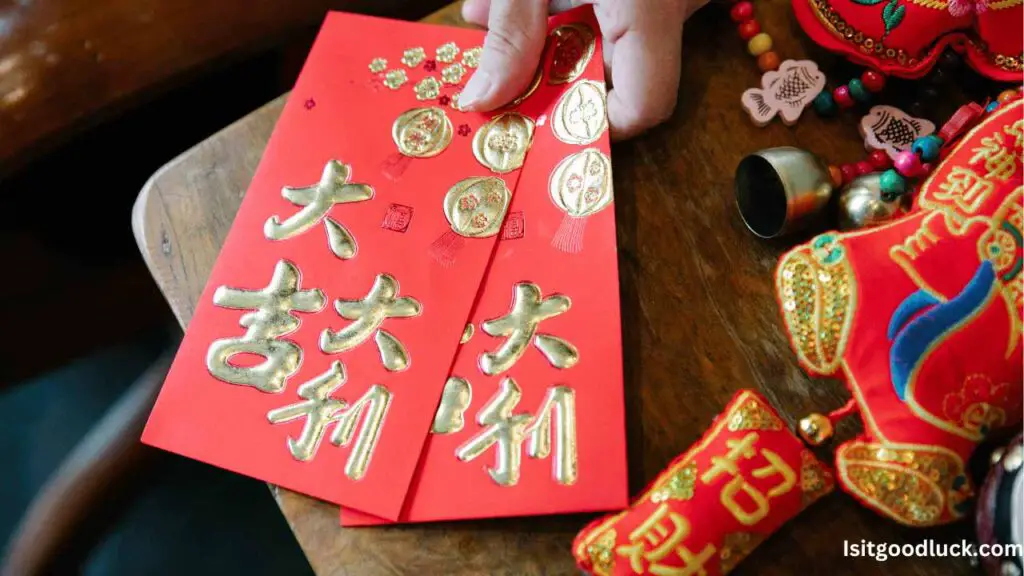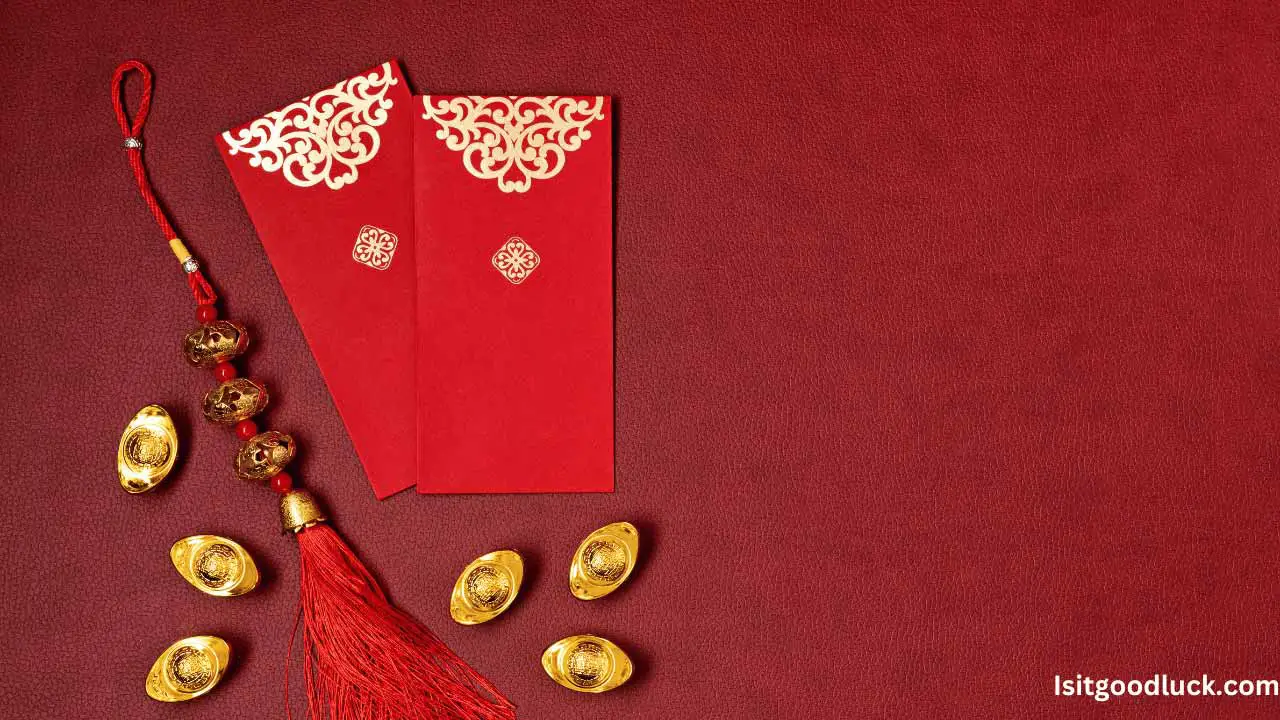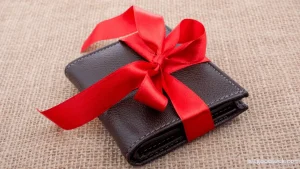Giving good luck money before the New Year is a common practice in many cultures. According to superstition, it is believed that gifting money symbolizes prosperity, good fortune, and a fresh start for the recipient in the upcoming year.
While this tradition varies among countries and regions, it is generally considered acceptable and even encouraged to give good luck money as a gesture of goodwill and blessings for the year ahead.
However, it is essential to be mindful of cultural customs and traditions when giving money for luck in the New Year.
Contents
- 1 Cultural Traditions and Customs Associated with New Year’s Money Gifts
- 2 Superstitions and Beliefs Surrounding New Year’s Money Gifts
- 3 Timing Considerations for Giving Good Luck Money
- 4 Conclusion
- 5 FAQ
- 5.1 Is it okay to give good luck money before New Year?
- 5.2 What are the cultural traditions and customs associated with New Year’s money gifts?
- 5.3 What superstitions and beliefs surround New Year’s money gifts?
- 5.4 What are the timing considerations for giving good luck money?
- 5.5 What are the etiquette and guidelines for giving good luck money?
- 6 Source Links
Key Takeaways:
- Giving good luck money before the New Year is a longstanding tradition in many cultures.
- Gifting money symbolizes prosperity, good fortune, and a fresh start for the recipient in the upcoming year.
- It is generally considered acceptable and even encouraged to give good luck money as a gesture of goodwill and blessings for the year ahead.
- Be mindful of cultural customs and traditions when giving money for luck in the New Year.
- Research and understand the specific customs and traditions associated with giving money for luck in the culture or community you are participating in to ensure that your gesture is respectful and in line with their practices.
Cultural Traditions and Customs Associated with New Year’s Money Gifts
Across cultures, giving money for luck in the New Year is deeply rooted in customs and beliefs. These traditions highlight the importance of gifting money for luck as a symbolic gesture steeped in cultural significance.
Asian Cultures: Red Envelopes and Blessings
In Asian cultures, such as China and Vietnam, it is customary to give red envelopes filled with money during the Lunar New Year celebrations.
These red envelopes, known as “hong bao” in Chinese and “lì xì” in Vietnamese, symbolize good fortune, blessings, and prosperity for the year ahead.
Giving red envelopes is a way to show respect and care for one another, especially among family members and close friends. The red color is believed to ward off evil spirits and bring good luck and happiness.
Also read: Is It Good Luck to Eat Chinese Food on New Years?
Greek Tradition: Hidden Coins in Vasilopita
A unique New Year tradition in Greece involves giving a coin hidden in a cake called vasilopita. The cake is baked and served on New Year’s Day, and the person who finds the coin in their slice is said to have good luck for the year.
This tradition combines the joy of sharing a celebratory meal with the excitement of uncovering a hidden treasure. Finding the coin is believed to bring blessings, prosperity, and a year filled with good fortune.
| Culture | Custom | Symbolism |
|---|---|---|
| Asian | Giving red envelopes with money | Good fortune, blessings, prosperity |
| Greek | Hidden coin in vasilopita | Good luck, blessings, prosperity |
“The act of giving money for luck serves as a way to honor traditions, express well-wishes, and foster a sense of community and togetherness.”
These cultural traditions and customs associated with New Year’s money gifts bring joy and excitement to the festivities, honor traditions, express well-wishes, and foster a sense of community and togetherness.
As you celebrate the New Year, consider embracing these customs and sharing the spirit of prosperity and blessings with your loved ones.
Also read: Is it Good Luck or Bad Luck to Go on Vacation During Chinese New Year’s?
Superstitions and Beliefs Surrounding New Year’s Money Gifts
When it comes to giving money for luck before the New Year, various superstitions and beliefs surround this tradition.
These practices highlight the importance of paying attention to detail and ensuring that giving money is done in a way that brings the best possible luck and blessings to the recipient in the coming year.
One common superstition is that the amount given should be an even number. In many cultures, odd numbers are considered unlucky, so showing even money is believed to bring good fortune.
Additionally, it is believed that the money should be given in new and crisp bills. Worn or damaged cash carries negative energy and may bring bad luck instead of good.
By adhering to these superstitions and beliefs, giving money for luck becomes more than just a gesture; it becomes a way to embrace the promising practices and traditions associated with the New Year.
| Superstitions and Beliefs | Meaning |
|---|---|
| Even Amounts of Money | It brings good fortune and luck |
| New and Crisp Bills | Carries positive energy and blessings |
“Giving money for luck is not just a casual act; it is a way of showing respect and bestowing positive energy upon the recipient for the upcoming year.”
The Significance of Even Amounts
One superstition surrounding giving money for luck is the belief that the amount should be even. Odd numbers are seen as unlucky in many cultures, so choosing an exact amount is believed to bring the recipient good fortune and positive energy.
Whether it is $8, $20, or any other denomination, giving an exact amount of money is a promising practice that bestows blessings for the coming year.
- Even amounts are believed to symbolize balance and harmony
- It is thought to bring stability and a sense of completeness
- Choosing an even amount shows attention to detail and care in the act of giving
By adhering to the belief in even amounts, you are not only embracing the superstitions and traditions associated with providing money for luck but also sending a message of positivity and goodwill for the recipient’s future.
So, consider these superstitions and beliefs if you plan to give money for luck before the New Year. Choose an even amount and provide it in new, crisp bills.
By doing so, you’ll embrace the promising practices and traditions passed down through generations and send blessings and good fortune to the recipient for the upcoming year.
Timing Considerations for Giving Good Luck Money
When giving good luck money before the New Year, timing plays an important role. Different cultures have specific traditions and customs regarding the appropriate time to give these gifts.
One typical example is during the Lunar New Year celebrations, which typically occur in late January or early February. In Chinese culture, it is customary to give red envelopes filled with money during this time to symbolize good fortune and blessings for the year ahead.
Similarly, the tradition of giving money (“lì xì”) is also associated with the Lunar New Year in Vietnam. By being aware of these timing considerations, you can ensure that your gesture of giving money for luck aligns with the cultural traditions and practices of the community you are participating in.
It’s important to note that while the Lunar New Year is a prominent time for giving good luck money, there may be other specific occasions and festivals in different cultures where this tradition is observed.
For example, in some areas of India, giving money to younger family members during Diwali, the festival of lights, is common.
Understanding the specific timing and occasions for giving good luck money will help you show respect and appreciation for the cultural traditions associated with this gesture.
| Culture | Occasion | Date |
|---|---|---|
| Chinese | Lunar New Year | Late January or early February |
| Vietnamese | Lunar New Year | Late January or early February |
| Indian (Diwali) | Festival of Lights | Varies (usually October or November) |
By following the appropriate timing considerations for giving good luck money, you can participate in and appreciate the traditions and customs associated with this gesture in various cultures.
Remember, it’s not just about giving money but also about embracing the cultural significance and spreading happiness and prosperity to those you care about.

Conclusion
As the New Year approaches, you may wonder if giving good luck money before the year begins is okay. The answer is yes! Providing cash for luck is a cherished tradition in many cultures, symbolizing prosperity, good fortune, and a fresh start for the recipient in the upcoming year.
From red envelopes filled with money during the Lunar New Year to hidden coins in cakes, these customs and practices reflect the belief in wishing others a positive and prosperous year ahead.
Whether participating in Asian customs or following traditions from other cultures, embracing the etiquette and guidelines associated with giving money for luck is essential to showing respect.
So spread happiness and prosperity by giving good luck money before the New Year. Embrace the cultural practices and customs, and let your gesture symbolize goodwill and blessings for those you care about. May the upcoming year be filled with joy, success, and abundance!
FAQ
Is it okay to give good luck money before New Year?
Yes, giving good luck money before the New Year is common in many cultures. It symbolizes prosperity, good fortune, and a fresh start for the recipient in the upcoming year.
What are the cultural traditions and customs associated with New Year’s money gifts?
Different cultures have their customs and traditions for giving money for luck in the New Year. For example, in Asian cultures, it is customary to give red envelopes filled with money during the Lunar New Year celebrations. These traditions vary but share the belief in bringing good fortune and blessings for the year ahead.
What superstitions and beliefs surround New Year’s money gifts?
Various superstitions are associated with giving money for luck before the New Year. For instance, some cultures believe the amount should be an even number, as odd numbers are considered unlucky. There are also beliefs that the money should be new and crisp, as worn or damaged money may bring bad luck.
What are the timing considerations for giving good luck money?
Timing is essential when giving money for luck before the New Year. In Chinese culture, it is customary to give red envelopes during the Lunar New Year celebrations, typically in late January or early February. Other cultures also associate money-giving with the Lunar New Year, so it’s essential to be aware of these timing considerations.
What are the etiquette and guidelines for giving good luck money?
When giving money for good luck, it is essential to follow cultural etiquette. In many Asian cultures, for example, giving money in a red envelope is customary, as red is considered a lucky color. The amount of money given should also be chosen carefully. Researching and understanding specific customs and traditions is crucial to ensure your gesture is respectful and in line with their practices.






